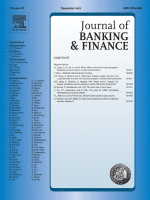TUPD-2023-012
| 表 題 |
The Effect of Bank Recapitalization Policy on Credit
Allocation, Investment, and Productivity: Evidence from a Banking Crisis in Japan
|
| 著 者 |
笠原 博幸
ブリティッシュコロンビア大学経済学部 教授
東北大学経済学研究科 客員教授
東京大学大学院経済学研究科 教授
東北大学経済学研究科 准教授
|
| P D F |

|
| 掲載誌 |
 Journal of Banking & Finance
Volume158
January 2024, 107047
Journal of Banking & Finance
Volume158
January 2024, 107047
|
| 要 旨 |
This paper examines the ramification of government capital injections into financially distressed banks during the 1997 Japanese banking crisis. By leveraging a unique dataset merging firm-level financial statements and bank balance sheets, the study aims to examine whether the capital injections primarily benefited high-productivity firms or were misallocated to struggling “zombie” firms. The empirical results suggest that banks, post-injection, increased lending to both high-productivity non-zombie firms and low-productivity zombie firms. While the former is in line with conventional theories that prioritize high-productivity firms for investment and productivity enhancement, the latter suggests credit misallocation towards struggling firms mainly for debt servicing. Intriguingly, the study finds no evidence that these injections promoted investments among firms, irrespective of their productivity or financial health status. In particular, we provide suggestive evidence that zombie firms even reduced investments, especially in infrastructure, while high-productivity non-zombie firms did not exhibit a significant investment boost despite receiving more loans. However, these high-productivity firms displayed positive growth in labor productivity and total factor productivity, potentially driven by sales growth and increased advertisement expenses rather than employment and wage adjustments. |
| キーワード |
Capital injection; Bank regulation; Banking crisis; Total Factor Productivity; Zombie
|
| 発行年月 | 2023年 8月 |

